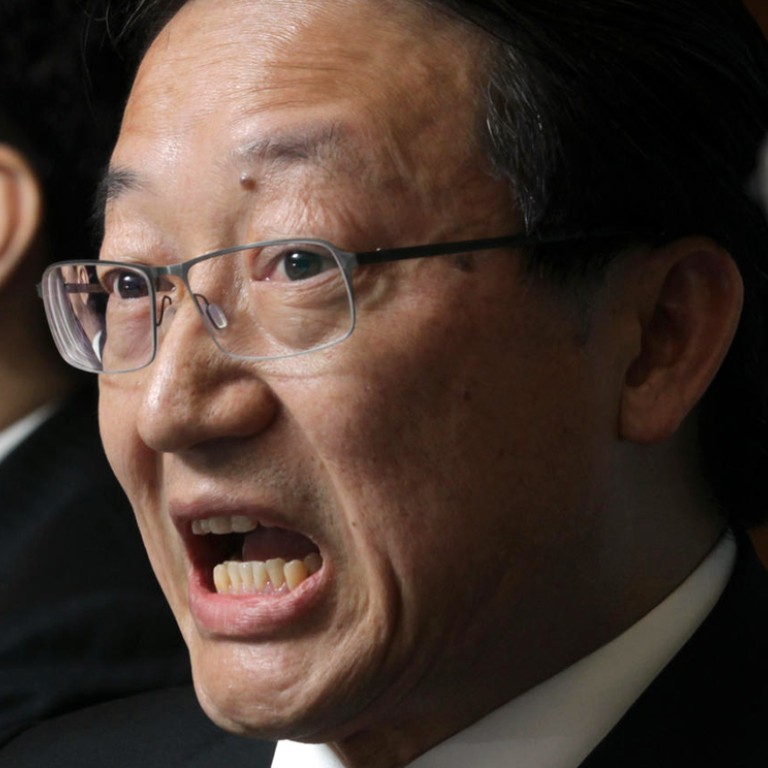
Ambrose Lam courted triumph, controversy as Law Society leader
Law Society head's comments on Beijing's white paper followed change of attitude on Occupy Central and success in Qianhai economic zone
When Ambrose Lam San-keung was re-elected president of the Law Society in May, few would have predicted that a month later he would be at the centre of a political storm unprecedented in the history of the solicitors' body.
Last night, he lost a motion of no-confidence following his support for Beijing's white paper that, in reaffirming its authority over Hong Kong, described judges as administrators with a political requirement to love China.
Anger over the paper brought 1,800 lawyers onto the streets in protest, but Lam described it as a "positive document".
Lam, a partner in the law firm Lam, Lee & Lai, went on to describe the Communist Party as "great" in a radio interview - without informing the society's council beforehand.
"His remarks really took us by surprise," a council member said.
Eyebrows were also raised over what some termed Lam's "chameleon-like" change of attitude towards the Occupy Central civil-disobedience movement.
As the newly elected president, he told journalists at a media gathering in June last year that he would contact organisers of the group "to see what legal assistance they would need". If Hong Kong's electoral reforms do not match the movement's ideas of true democracy, then it plans to mobilise 10,000 protesters to block streets in the Central business district.
It was a lawyer's duty, Lam declared, to protect the legal rights of others.
But at another media gathering he hastily called four months later, he said there were no legal grounds for civil disobedience and said the notion of "peaceful violence" was just "beautiful rhetoric".
"I am angry that many people are disrupting the social order and the rule of law by abusing the name of justice," Lam told journalists, without mentioning Occupy Central by name.
"There are ample channels for individuals to express their discontent against the system - either through the legislature or the courts to change the laws."
I am angry that many people are disrupting the rule of law by abusing the name of justice
Despite the controversies, his term has also seen a "breakthrough" cross-border arrangement under which Hong Kong lawyers will be allowed to advise people living in Shenzhen's Qianhai special economic zone.
Announcing it proudly at his June 2013 gathering, he said it followed two years of campaigning and research by the Law Society.
A lawyer who has known Lam for more than 10 years described it as a breakthrough that stood as one of the major contributions Lam had made to the legal sector, though it came largely from work he did before he led the society.
Another of his major contributions was helping to set up the society's Recreation and Sports Committee, the lawyer said.
"Such a committee is so important to bring together members who share the same hobbies," the lawyer added.
However, Lam also landed in hot water last year after he suddenly announced that the Law Society had commissioned a British law school to collect views from people and groups on replacing the qualifying tests provided by the three law schools - University of Hong Kong, Chinese University and City University.
Lam tried to justify the decision by saying the society had received complaints from lawyers about their children failing to gain entry to the existing postgraduate qualification programmes (PCLL).
Professor Johannes Chan Man-mun, dean of Hong Kong University's faculty of law, responded: "We take the students based on … ability, not because of their family background. We don't take into account whether the students come from families who are lawyers."
The conflict between the Law Society and the law schools over the PCLL arrangement remains unresolved. "We did not expect him to announce all the details that gave the public an impression that the Law Society must go ahead with the plan regardless of the views of the three universities," a society member said.

